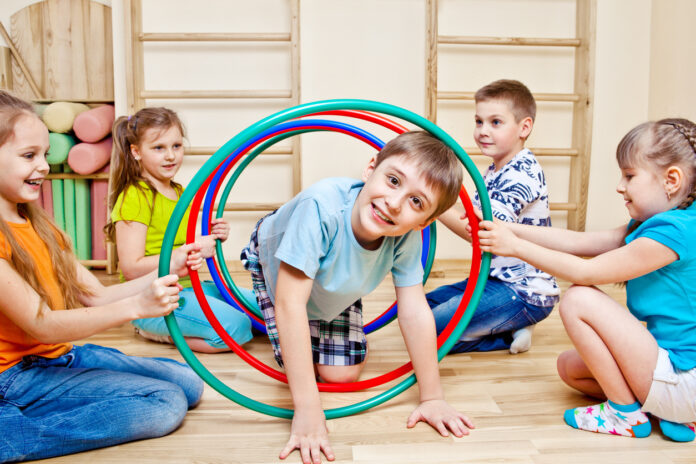
Extracurricular activities have a significant role in a child’s development and personal growth. Whether they join a club in school, practice sports, do volunteering work, or sign-up for camps during summer holidays, such actions can support the development of essential life skills from an early age. Attending school is of the utmost importance in a child’s education, as the skills and knowledge gained throughout this period of time influence how you perceive life as an adult.
What’s more, another benefit of education is that it gives children stability as well as decision-making and critical thinking skills. An equally important part of a child’s education is extracurricular activities. The fact is that, in order to support personal growth and development, a combination of schoolwork and fun yet learning activities is the most effective. In the following article, you can see how extracurricular activities can support the development of specific skills, instill a sense of belonging, and can positively influence children through their following stages of life.
Extracurricular activities can:
Support the development of social skills

Any type of extracurricular activity is interactive in a specific way, and therefore the need for communication is deeply integrated. One can easily become unsociable in a world that has become so dependent on the digital environment and technologies. It isn’t news that the use of social media and digital devices changes how people communicate with each other. Therefore, in a child’s development, it is of the utmost importance you give them the opportunity to foster their social skills.
Extracurricular activities such as doing community and volunteering work, practicing a sport, or joining an arts-focused club, are effective ways of building friendships and learning how to interact with others. The fact that they choose to do an activity where everyone is sharing common interests can be an ice-breaker for starting a conversation.
With time, by doing other extracurricular activities, no matter how big or small, your child’s confidence will increase. This will help them communicate better and will be less inclined to develop feelings of anxiety. Plus, the fact that the child will be interacting with others of similar age and do certain activities together will teach them how to work effectively in a team and respect others’ opinions and feelings. So, with the development of social skills, they will foster empathy.
Enhance critical thinking skills

If your child chooses to join the debate team, or another subject-specific club or group, this will allow them to enhance their critical thinking skills. Apart from school tasks and homework, such an activity that is more focused on a specific area that your child is taking a particular interest in is highly effective in motivating and fostering analytic skills. With what children and students learn in school and what they apply at activities like those mentioned above, they are more prepared to tackle any obstacles. With critical thinking, you also enhance your problem-solving.
What’s more, extracurricular activities give young people the chance to think outside the box, unlock their creativity and come up with innovative ideas.
What’s more, extracurricular activities like singing give young people the chance to think outside the box, unlock their creativity and come up with innovative ideas. It is crucial you allow children and adolescents to foster their imagination through singing lessons such as those on lessons.com.au, as this will help them find solutions to problems that sometimes seem difficult to solve. Singing songs teaches them to focus, listen carefully, and repeat what they hear. Plus, this will promote their growth and help them gain the maturity they need later in life when it is time to think about a career or set professional and personal goals.
Encourage finding your purpose

The best way for children to find what interests them or whether they have a hidden talent is by trying out different activities. It doesn’t matter if they don’t necessarily have something in mind – you can still support them and guide them in the right direction.
Extracurricular activities encourage young people to find their purpose. For instance, summer camps at Mill Basin Day Camp have a multitude of activities that can support self-discovery, finding your passions, or revealing a talent. Your child might take an interest in arts and crafts, thanks to a workshop they attended during a camp. Not only this, but they might discover they have a specific talent, and you can help them unlock their full potential.
The truth is, even if a child doesn’t find a passion, such an experience is still beneficial, and it can increase self-awareness. Children will have the opportunity to get to know themselves better: such as finding out whether they work more effectively in a team or individually, or maybe they discover natural-born leadership skills. Therefore, you might want to consider signing your child up for a summer camp. If you fear they might not be ready for a lengthy camp in a distant location, you still have other options closer to home, such as summer camps in Queens.
This way, you give them the chance to try the experience without having to commit to a more extended period. It is guaranteed it will be beneficial, as the environment of this type of activity supports gaining a sense of self. Not to mention, during younger years is the perfect time to experience this, build friendships, and discover your likes and dislikes.
Improve academic performance

Last but definitely not least, extracurricular activities not only enhance children’s personal growth but can also improve how students perform academically. As mentioned earlier, analytical and critical thinking skills are improved. In addition, such activities support the development of cognitive skills such as focused and divided attention or logical reasoning. Not to mention that playing sports can enhance your child’s mental and physical health, making them adhere to a schedule that facilitates their learning style and improves time management skills.
Children who do extracurricular activities learn how to commit to a particular project or task from an early stage. Developing such a discipline on their own can have a positive impact on their academic performance. Not only this but when they reach the stage in their life when they start looking for a job, all these experiences and skills gained through extracurricular activities will make them more employable, as they have acquired a competitive advantage.











